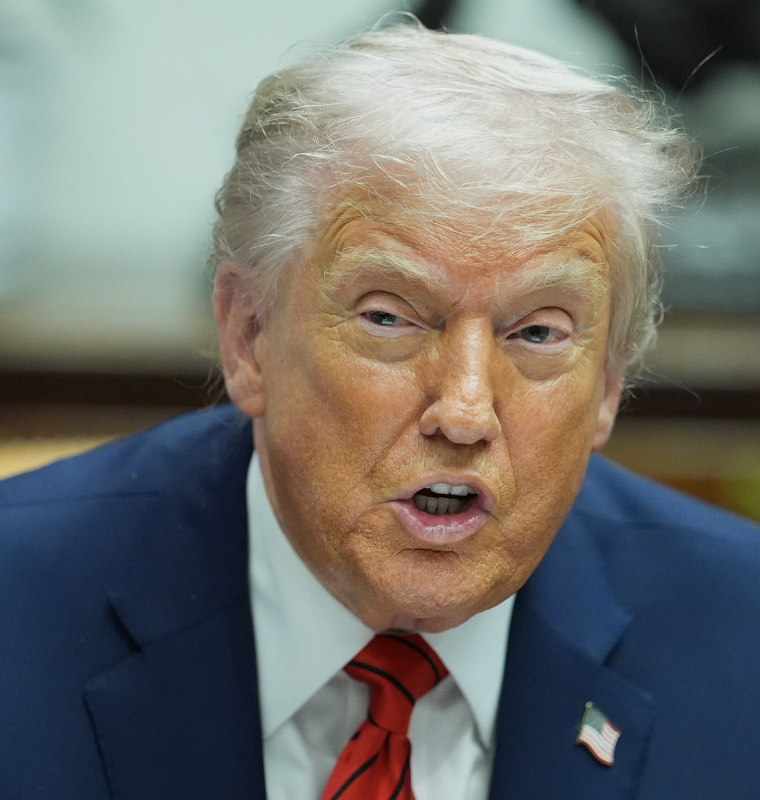South Korea Unveils $23.2 Billion Semiconductor Support Package Amid Looming U.S. Tariffs
South Korea Unveils $23.2 Billion Semiconductor Support Package Amid Looming U.S. Tariffs
By
David Goldfarb
Last updated:
April 15, 2025
First Published:
August 3, 2025

Photograph: Yonhap News Agency/Reuters
In a decisive move to safeguard its semiconductor industry, South Korea has announced a substantial support package worth 33 trillion won (approximately $23.2 billion). This initiative comes as the United States signals potential new tariffs on imported semiconductors, raising concerns over global supply chains and trade dynamics.
South Korea's Strategic Investment
The South Korean government's support package represents a significant increase from the 26 trillion won allocated in the previous year. Key components of the package include:
- Infrastructure Development: Subsidizing the construction of underground power transmission lines to semiconductor clusters, enhancing the resilience and efficiency of chip production facilities.
- Financial Support: Offering 20 trillion won in low-interest loans to semiconductor companies between 2025 and 2027, up from the current 17 trillion won, to stimulate investment and innovation.
- Talent and Research Initiatives: Introducing training and research programs for domestic master's and doctoral students, along with global joint research programs to attract foreign talent, ensuring a robust pipeline of skilled professionals in the semiconductor sector.
These measures underscore South Korea's commitment to maintaining its leadership in the global semiconductor market, especially as the industry faces increasing geopolitical challenges.
U.S. Tariff Considerations
The announcement from Seoul coincides with indications from the U.S. administration, led by President Donald Trump, of impending tariffs on imported semiconductors. While some electronic products were recently exempted from steep reciprocal tariffs on Chinese imports, the U.S. Department of Commerce has initiated a national security investigation into the electronics supply chain, signaling that new duties targeting semiconductors and technology products could be implemented in the coming months.
Commerce Secretary Howard Lutnick emphasized that these sector-specific tariffs aim to bolster domestic manufacturing and reduce reliance on foreign supply chains. Analysts suggest that tariffs could range from 10% to 25%, potentially impacting global semiconductor trade dynamics.
South Korea's Semiconductor Export Landscape
Semiconductors are a cornerstone of South Korea's economy, accounting for approximately 21% of the country's total exports. In 2024, semiconductor exports reached a record $141.9 billion, marking a 43.9% year-on-year increase. This growth was driven by robust demand for high-bandwidth memory chips and other premium products, despite a general decline in global semiconductor prices.
The United States stands as South Korea's second-largest export destination, with exports rising 10.5% year-on-year to $127.8 billion in 2024, achieving a new annual high for the seventh consecutive year. These figures highlight the critical importance of the U.S. market for South Korean semiconductor manufacturers.
Industry Perspectives
Industry experts view South Korea's support package as a proactive measure to reinforce its semiconductor sector amid global uncertainties. Daniel Yoo, head of the global investment department at Yuanta Securities, described the initiative as a "sovereign effort to boost the semiconductor industry," noting that it is essential for maintaining South Korea's leading position in the memory segment of the semiconductor market.
Yoo also emphasized the necessity of government support for small and medium-sized enterprises (SMEs) that may need to establish operations in the U.S. if semiconductor plants are built there. He remarked, "Government support is most needed. I am not sure that is enough, but surely needed support that other competitors were getting from their countries."
As the global semiconductor industry navigates the complexities of trade tensions and shifting policies, South Korea's substantial investment reflects its determination to remain a key player. The interplay between domestic support measures and international trade policies will be pivotal in shaping the future of the semiconductor landscape.
Popular articles
Subscribe to unlock premium content
Luxury Smart Jewelry Becomes a $200 Million Trend Among Millennials

Stranger Things Fever Takes Over Retail

Private Island Rentals for Corporate Retreats Hit $1 Billion

Luxury Smart Jewelry Becomes a $200 Million Trend Among Millennials

Stranger Things Fever Takes Over Retail

Luxury Smart Jewelry Becomes a $200 Million Trend Among Millennials









